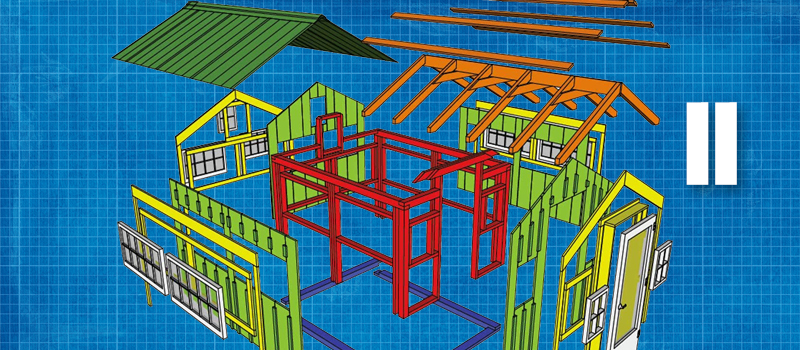Farming and tilling the ground has been a part of the human experience on this earth since the days of Adam, or at least since Abel, as it was mentioned in the Good Book. Nearly every civilization that has sprung up since then, have had to have a portion of cultivation within their society to survive for any longer amount of time. Those who did not were hot flashes in a pan history-wise. It was those who tilled the soil and planted crops that could withstand the winds of time blowing against their communities. In modern times, this is no different.
For thousands of years, farming and the methods to do it remained pretty static. Using beasts of burden (human or not) putting the desired crop into a receptive portion of ground prepared for its arrival. Hope and pray that the rains come in time, and with human ingenuity eventually pulling the water to the fledgling crops was instituted. Things in the last 300 years have really sped up with the concentration upon agriculture and the mass growth of crops. Growing practices, fertilizers, pesticides, and more recently the genetically modified seeds for better growing and growing more abundantly have been introduced.
Today the home garden, root cellar, and cultivation of fruit-bearing trees and bushes have nearly been pushed out of general public awareness. The ease of getting your food, over the course of the last 50 years has pushed out the need to learn how to do those long ago life-saving habits. A generation and a half have had enough economic prosperity that to do so wasn’t a necessity. People in the last 10 years have awoken (somewhat) to the very real possibility of supply chains breaking, and the acquisition of food becoming a bit more scarce.
If you own your property, adapting to the tenets of traditional gardening (and doing Aquaponics) is not too difficult although HOAs often have restrictions regarding the placement of garden areas as well as ownership of small farm animals. On the other hand, renters face a unique dilemma: they do not own the property or the land.
We will be covering here the Plan of your Aquaponic System – If you missed part 1, click here.
How to Grow with Aquaponics When You Rent – Make the Plan
In Part 1 of the series, we discussed the definition and mindset of growing with Aquaponics.
 The definition of the word Gardening and for that matter, Aquaponics is not the same as it used to represent. Being successful is not determined by how much land you have, how big your garden is, or how much supporting livestock you own. Aquaponics in particular is a mentality, a special way of looking at the world, and resources around you. It’s providing your food needs by your own means instead of buying everything, to the best of your ability. It is adaptation and acceptance of resources, space, or crop limitations. It is not just for people with a farm in the country.
The definition of the word Gardening and for that matter, Aquaponics is not the same as it used to represent. Being successful is not determined by how much land you have, how big your garden is, or how much supporting livestock you own. Aquaponics in particular is a mentality, a special way of looking at the world, and resources around you. It’s providing your food needs by your own means instead of buying everything, to the best of your ability. It is adaptation and acceptance of resources, space, or crop limitations. It is not just for people with a farm in the country.
If you want to grow food in a closed ecosystem where you are, especially if you rent, you can, but you have to change how you look at the situation you’re in. This is where planning and determination come into play. This is also where the fun really starts! Sit down at your computer or go old school and grab a piece of paper and pencil. Some people buy journals and take notes constantly to help them remember all of the ideas they have in a day.
Hopefully, at this point, you have decided and defined within your mind what a functioning Aquaponics system would mean to you in your life. You have at least a vague idea of what you want to accomplish but writing it down makes a big difference. Since we were children, writing something down or seeing it printed seems to make ideas, stories, and even laws more ‘real,’ more plausible, and tangible.
This is no different!
This is where your skills and talents for research really kick in. When you conceptualize what you want to do in the space and restraints you may have with the System, then you can start looking for those solutions. There are several you can readily find with an Internet search that can get you what you need. Like us here at ThatAquaponicsGuy we can get you the Desktop Kit that gets your feet wet when it comes to doing Aquaponics indoors. It can be very exciting to really imagine each thing you want to accomplish, write it down and watch it all click together like puzzle pieces into your picture of a Growing System given your situation. Even if it is not the ‘ultimate dream,’ there has to be a starting point somewhere!
If you are considering the indoor growing option, being climate-controlled, the type of fish and the water temps won’t be much of a concern. If you are doing it on a balcony or in a small portion of your rental’s yard then you will need to plan according to the weather your area experiences. Then there are the decisions on the growing mediums available (we recommend the clay <> for ease of use and it being a little more forgiving of mistakes). And not least of all the seeds, sprouts, and plants you want to start, grow and harvest from. I myself wanted more control and the savings on having truly non-GMO and chemical-free food. Given the space we have to work with (about 150 square feet), getting a consistent bounty can be pretty impressive!
Even if you are limited to the windows of your high-rise condo, there are solutions. Say you want to grow strawberries but only have one window to work with. I have seen articles about growing strawberries in a hydroponic vertical configuration in PVC tubes that have holes cut out for the greens and roots to grow out of, leaving plenty of space for the strawberries to flower and to grow. In the end, they had over a dozen strawberry plants to harvest! Worst case scenario (or best, depending on how you look at it) would be to get an aero garden that makes countertop gardening easier to do, even for incredibly busy people.
It can be hard to even know the right questions to ask when you are just starting out. You have this desire to take charge, get busy, and make some changes! Hold on to your enthusiasm and set your mind to accept that your journey is just starting and will be built on over the course of time. So often, people rush in and want to do it all – right now – and when they don’t see the results they wanted just to give up.
The very idea of Aquaponics is to build something sustainable in the long run. This is definitely a long-play set of activities you are looking to take on.
Ask Yourself These Questions Before You Even Start
The following questions may help you to create a clearer picture of what exactly you want. First comes the desire, the resources come later. Don’t let money (or a lack of) or other constraints interfere with your answers.
What kinds of foods do I want to grow for myself?
Do I want to grow just food? Medicinal Herbs (non-cannabis related)? Herbs and Spices?
Do I want to raise the fish to eat eventually?
What end goal am I really seeking?
What does Food independence look like to me?
Saving money by making common supplies yourself?
able to learn new skills and apply them?
A healthier lifestyle, a more simple lifestyle?
What is the big picture look like in 5 or so years’ time?
These are some excellent questions that will undoubtedly lead you to more questions. There are no “right or wrong” answers to any of them. This step will go a long way to your overall success. You may not be able to do something you really want to right now so you focus on the things you can do now while working toward the other ones. No one expects you to learn how to make your own grow fifty pounds of potatoes in a day!
As you go through your answers, there may be some things you know you won’t be able to do without some divine intervention. Instead of beating yourself up over it, accept it as a normal thing! No one person can do everything and that is why you work with other people who also prefer the SubUrbian Farmer lifestyle.
Once you have the answers you know you need now (and there will be many new ones along the way) put it in a course of action. Identify the first steps that must be taken above all the others, prioritize them, and then move your hiney towards accomplishing those tasks. As Bob Wiley always says in the classic, “What About Bob?” – It’s all about the baby-steppin’!
Networking helps to fill in the areas where you are limited. Perhaps you are able to grow some really fantastic hot peppers in your apartment window and have a bumper crop. There is someone out there who will happily trade some of their extras for yours! Limitations are opportunities to figure out different ways of getting what you want. There are numerous communities and ways to achieve your goals and I am learning every day.
There is a truth to this lifestyle: a Sub-Urbian Farmer should not do this all alone, more the merrier.
You can hob-knob with like-minded individuals, that may have seen what you are now going through. May have a part or tool that they can advise you on that will make things that much easier. It could also mean that your system is a compendium of put-together knick-knacks that do the job that they need to do for the time being gathered through looking on Craigslist or checking secondhand/thrift stores like the Salvation Army. You would be amazed at how many people just want to get their clutter cleared out and are willing to part with it for free or for pennies on the dollar.
Many times I can get my supplies for cheaper than I thought, and but I also met people who were into the same things as I am. My network has grown because of putting in the legwork myself. Because of getting out there and meeting people, I was invited to a seed-exchanges, and bartering for some of what I had more of and that they may need and vice versa.
Once you have the plan of what it is you really want to accomplish, the next step is to assess your resources. This part can be challenging to start but gets easier quickly. Seeing that milk crate in your closet as something other than just a milk crate for storing and carrying items may be hard at first. Once you open your mind to the possibilities, a whole new world opens up!
We will get into resources in part 3 of “How to Aquaponic When You Rent.”
Overall TakeAway
Wherever you live, Aquaponics is about growing a garden and eating fresh, local food. It is about getting involved in the local community and bartering goods and skills to fulfill your needs and the needs of your neighbors.






